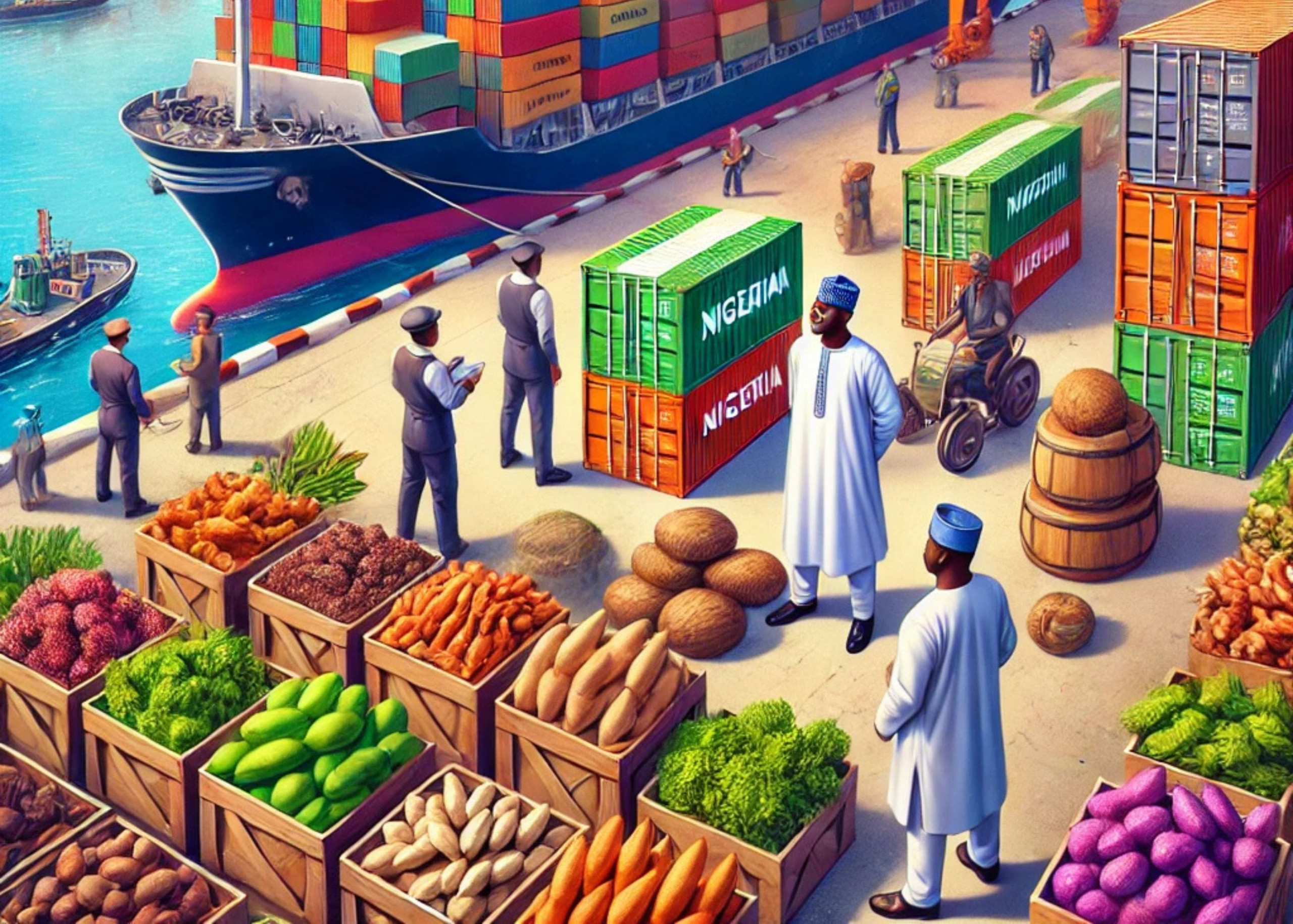News in brief:
– Nigeria exported 27,595 containers of non-crude oil products worth $1.9 billion between January and November 2024, with agricultural goods accounting for 50%.
– Stakeholders praised the achievement, emphasising its potential to strengthen the naira and foster economic growth.
Between January and November 2024, the Nigeria Customs Service (NCS) reported the exportation of 27,595 containers of non-oil products, with a free-on-board (FOB) value of $1.9 billion. The majority of these exports were agricultural products, which accounted for 50% of the total, valued at $967 million. Other exports included solid minerals (16%), manufactured goods (15%), and miscellaneous items (17%).
The FOB value represents the cost of goods at the point of exportation, excluding shipping and insurance fees, making it an important benchmark for tracking export growth.
Revenue collection hits record-high
In addition to export achievements, the agency announced revenue collections of ₦5.079 trillion as of November 12, 2024. This surpassed its annual target of ₦5.07 trillion with over a month left in the fiscal year.
These revelations were made by the Comptroller-General of Customs, Adewale Adeniyi, during the 2024 Customs Conference in Abuja. He attributed the milestone to strategic engagements and collaborative approaches with industry stakeholders.
Stakeholders in the export and logistics sector praised the Customs Service’s performance. The National Public Relations Officer of the Association of Registered Freight Forwarders of Nigeria, Taiwo Fatobilola, highlighted the potential impact on Nigeria’s exchange rate. “This development could strengthen the naira by increasing foreign currency reserves,” he remarked.
Similarly, Ojo Akintoye, a chieftain of the Association of Nigerian Licensed Customs Agents, commended the government for fostering export-friendly policies despite challenges such as naira devaluation. “This progress, if sustained, could directly and indirectly benefit Nigerians by stimulating job creation in export-driven sectors,” he added.
The report reflects Nigeria’s efforts to diversify its economy by prioritising non-oil exports. According to the National Association of Government-Approved Freight Forwarders, the shift toward exporting agricultural products, solid minerals, and manufactured goods signals the potential for reduced dependence on imports, a key factor in stabilising the economy.



